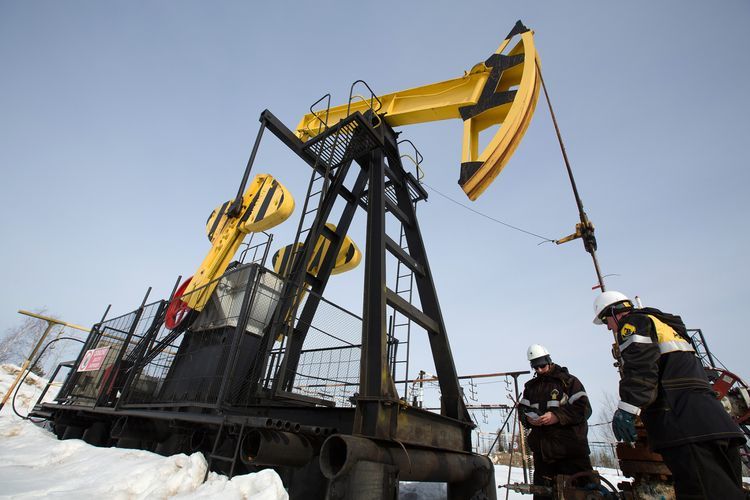
Rosneft Oil PJSC has racked up more than $17 billion worth of debt in 2017, its biggest year of borrowing on record, as the threat of new sanctions hangs over Russian debt markets.
Russia’s state-owned oil giant — whose access to global capital markets is blocked by previous punitive measures — issued new notes Friday that took this year’s borrowings in the bond market to 1 trillion rubles ($17 billion). That’s more than the total for the past two years combined, according to data compiled by Bloomberg.
Proceeds from Friday’s sale of 600 billion rubles of 10-year notes will help fund oil and gas projects as well as refinance existing debt at lower rates, the Moscow-based company said in an emailed statement. Chief Executive Officer Igor Sechin said at a shareholder meeting in June that the company plans to invest more than 1 trillion rubles this year and next.
“They are issuing now because they can,” said Yannick Naud, head of fixed income at Banque Audi in Geneva, who has an overweight position on Russian corporate bonds. “They have quite a lot of debt outstanding. It’s important for them to be able to refinance.”
Rosneft has turned to investors at home since sanctions over Russia’s 2014 takeover of Crimea closed off U.S. and European capital markets. Now, the U.S. Treasury is preparing recommendations on the impact of extending penalties to sovereign ruble debt. Should Russia’s government grow more dependent on local investors, that could shrink the amount of liquidity available to state-owned issuers.
Faced with $7 billion of debt payments to Western banks in December 2014, Rosneft issued 1 trillion rubles of debt over several months via Bank Otkritie FC, which used the notes as collateral to borrow dollars from the central bank and lend back to the oil company. The deal contributed to the ruble’s plunge and earned Sechin a rare public rebuke from President Vladimir Putin.
Borrowing costs for Russian companies have plunged this year as spreads at multi-year lows in developed markets push investors further down the risk ladder in search of return. Rosneft priced Friday’s issue with a coupon of 8.35 percent, saving more than 1 percentage point on the rate it negotiated a year ago for similar notes.
The company owes $3.6 billion on its outstanding dollar obligations sold before sanctions were implemented, including a $1.1 billion dollar bond due for repayment in March.